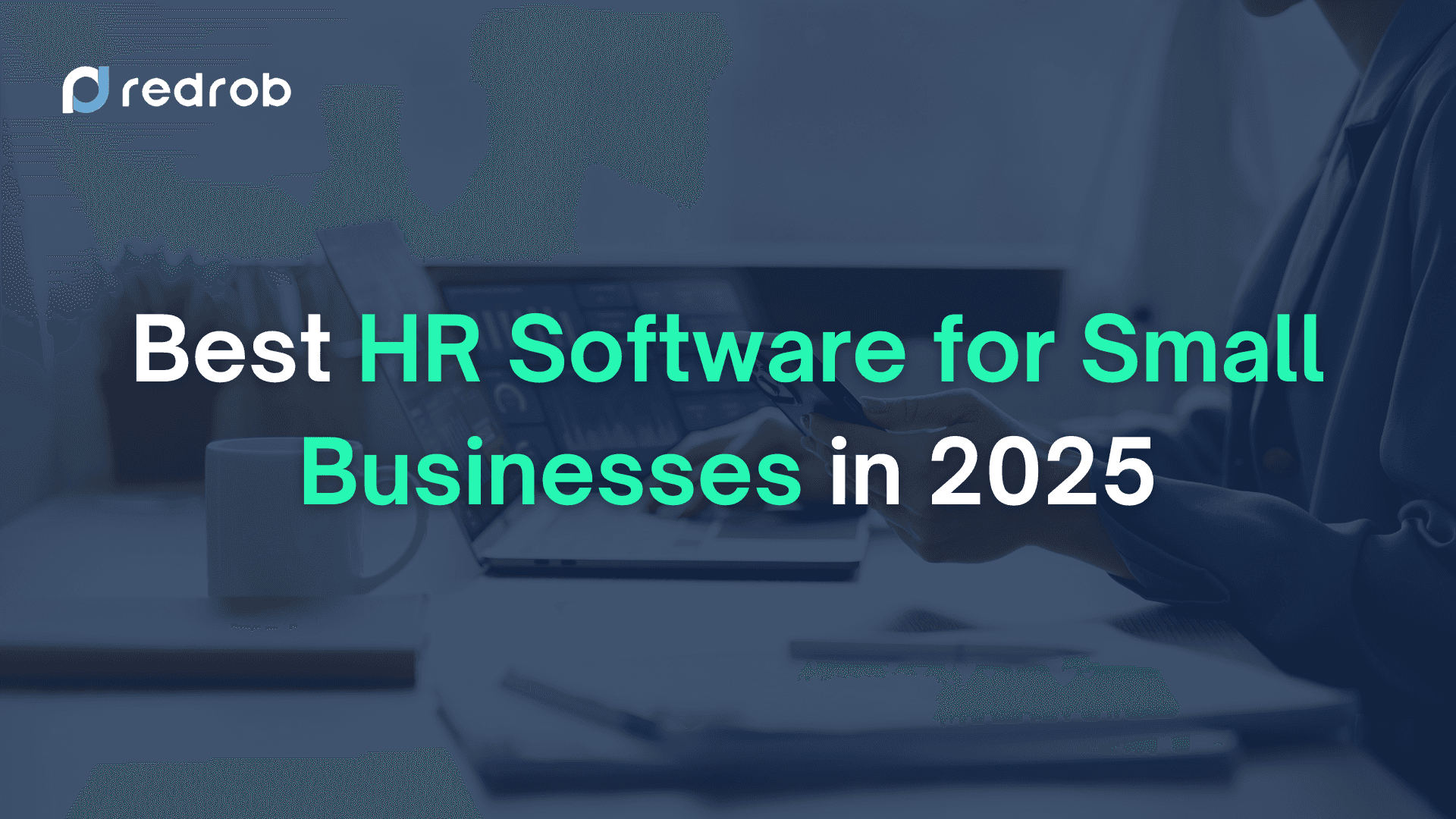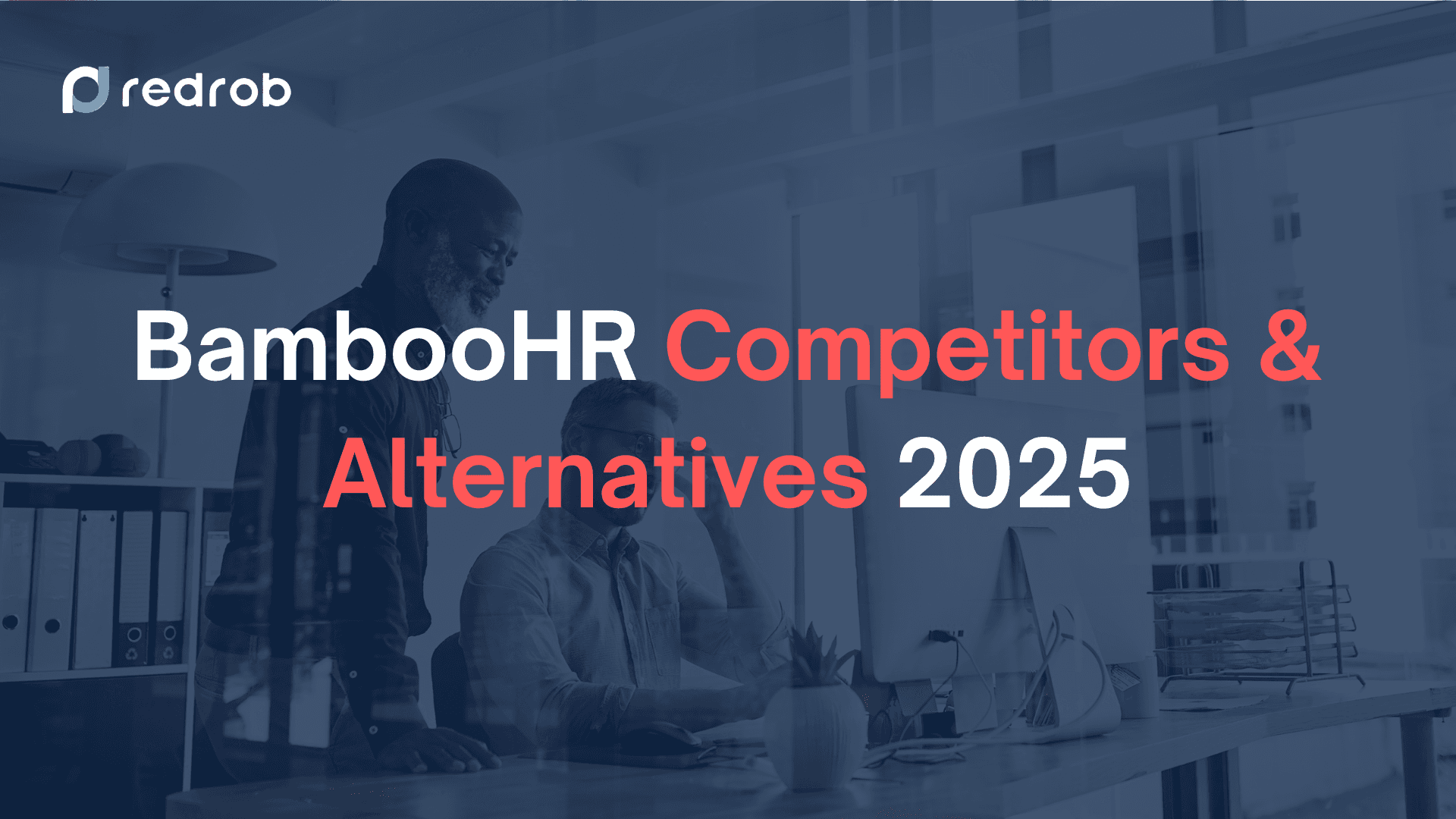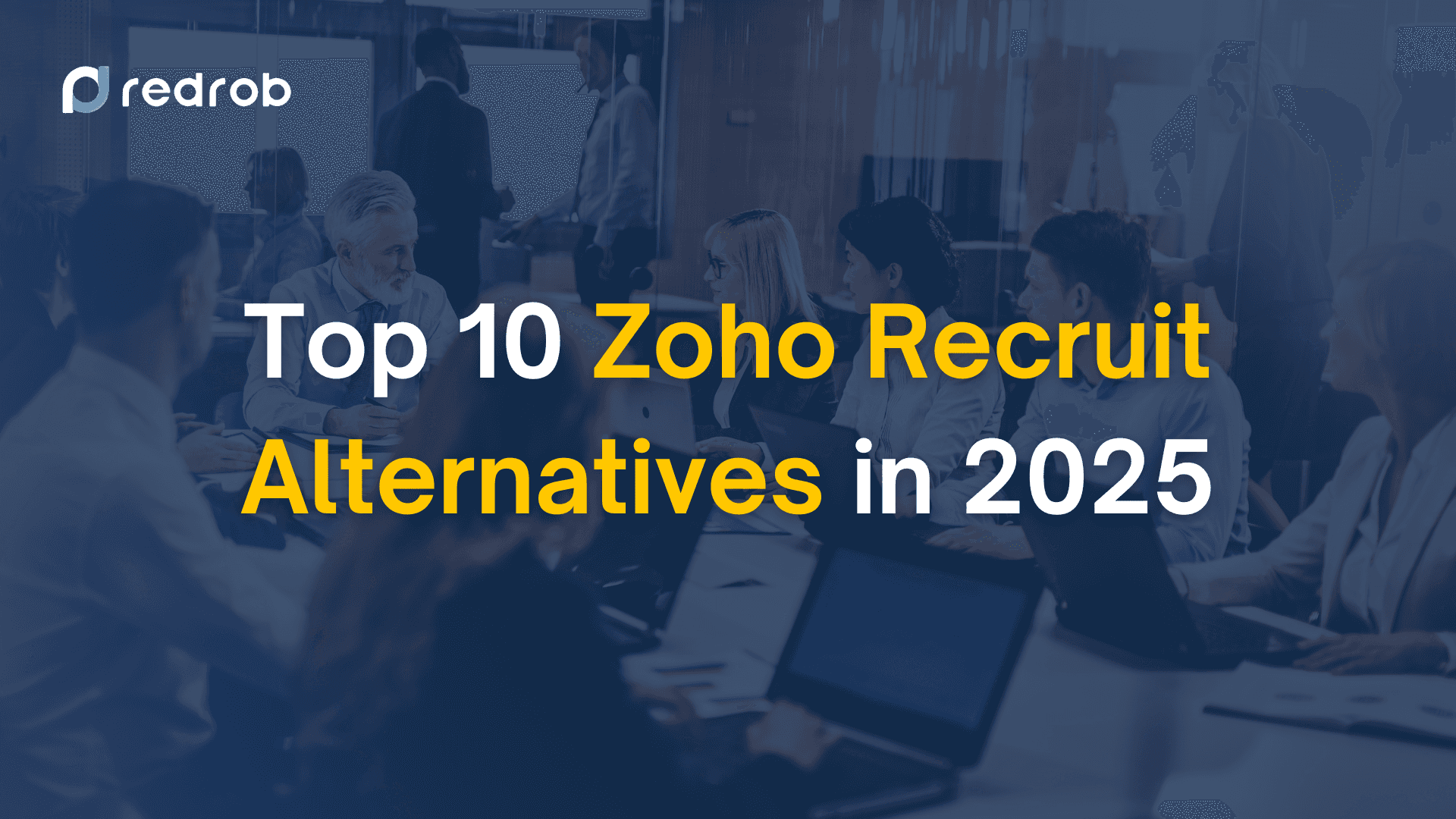Hiring Process
•
May 29, 2024

Soumyata Singh
As per the review given by Harvard Business Review - they observed that when they surveyed 800 senior business leaders - more than 95% of them conveyed that hiring and retaining talent was one of their top three priorities as they strive to deliver on their strategies. But as we explore the hiring and recruitment challenges further - we realize that even the prospects side is not devoid of concerns that are no less equal than the recruitment side.
In this blog, we will explore the problems from both ends of the system and then understand how sustainability can be institutionalized in this evolving domain of human resource management and its processes.
Understanding the Importance of a Sustainable Hiring Process
The hiring process is a wide domain - this includes several stages and continuous efforts that stretch to several months. The entire process necessitates intricate design with an ideal requirement of zero lapses of any kind. But as is the case with anything - unpredictable events make sure that this process like any other process is not perfect. This industry is highly dependent on these unprecedented events - which could include employees resigning, companies seeking expansion and sometimes it could be any outbound event.
What matters here is to understand that - at the crux of it there’s one professional either starting his/her professional journey or making progress from the current employer to the next. The cycle continues and varies as per the requirements. Each side in this employment channel is dependent on one or the other fact which creates a reciprocity - where one thing impacts directly while the other directs inversely.
Pain Points in the Hiring Process
Now, you understand the environmental and economic influence on the hiring industry. Let's broaden our understanding of some of the pain points of this industry. First, we also need to understand that this industry is so closely tied to each other - the pain point varies but largely accounts for a few selected factors.
Recruiters: Common Challenges
Identifying and Attracting Top Talent
One of the primary challenges in the hiring process is identifying and attracting qualified candidates. This extensive process involves reaching a broad audience through job postings. Further, one also actively needs to work to source candidates who possess the necessary skills and experience.
As per John Dooney, HR knowledge advisor at SHRM, “Companies are not finding qualified candidates, and someone who applies may think they’re qualified when they’re not”.
This is major because of the absence of domain-specific assessment tests coupled with the right machinery to perform the evaluation. Keeping in mind the limitation of resources - managing this task is not cost-effective for each candidate - given there’s variation in the requirements of only a few select candidates in each firm.
Reducing Time in Screening and Interviewing Candidates
The screening and interviewing stages are crucial yet time-consuming components of the hiring process. This entire process is time-consuming and consumes 60% of the company’s vetting time. Since the company's majority of time gets devoted to the initial steps, managing time for further rounds becomes a hectic task leading to companies failing to prevent prolonged vacancies that can impact business operations.
Again, most of the companies suffer in handling the large influx of candidates leading them to mismanage the scheduling and screening process. This heaps into poor productivity as this contributes to the overwhelming workload on the stunted workforce of that respective company leading to resentment and a poor work environment.
Overcoming Challenges in Final Hiring Decisions
Making the final hiring decision can be a daunting task for hiring managers. This decision requires balancing various factors, such as candidate qualifications, cultural fit, and long-term potential. Hiring managers face significant pressure to avoid costly and time-consuming mistakes in the recruitment process. According to SHRM, the average cost per hire can be estimated to be about $4,700 in 2022 but this figure can escalate to three to four times the position's salary.
Edie Goldberg of E.I. Goldberg & Associates notes that 30% to 40% of these costs are direct expenses, while the remaining 60% are indirect costs, such as the time invested by leaders and managers in the hiring process.
Compounded by this earnestness to find the right match - the hiring managers find themselves stuck with the task of making the final decision. This delay can be attributed to the fact that the hiring process has its own flaws and is plagued by the absence of smart proctoring where candidates fake their skills and opt for cheating to secure the position.
Job Seekers: Common Challenges
For job seekers - the market is highly gleaned by the influx of candidates. This scenario creates a highly competitive environment in an already cut-throat chase of entry-level candidates and even niche positions.
Mismatched Assessments Tests and Interviews
One of the major concerns that the applicants have felt is about the assessment tests not being appropriate for the respective roles they were applying for. Also, the interview process also remains unstructured and for this reason, Peter Cappelli, director of the Center for Human Resources at the Wharton School has made a sharp observation-
“Unstructured interviews, where employers just ask whatever they want, are major sources of bias in the process and predict very little about who will succeed…”
This becomes really concerning as India has a large demographic dividend and a much larger workforce ready to be employed.
Strategies for Retaining Top Talent
Retaining top talent is a critical aspect of the hiring process that extends beyond the initial recruitment phase. Once a talented individual is onboarded, it is crucial to ensure their engagement and satisfaction to prevent turnover.
The lack of access to resources and the tight timeline an employee has to function - more often than not. On average, a chunk of employees opt to quit such workspace to be part of some other organization that offers some or the other variable for skill enhancements.
Now that you are aware of the challenges - let's understand how these organizations can enhance their hiring processes, leading to more effective recruitment and better long-term outcomes.
Crafting Sustainable Hiring Solutions
Sustainable hiring solutions are essential for creating an efficient, effective, and environmentally friendly recruitment process. By focusing on streamlined application processes, transparent communication, skill development, efficient screening, cost-effective strategies, and data analytics, companies can build a robust hiring framework that attracts and retains top talent while aligning with broader sustainability goals.
Streamlined Application Processes
Creating a streamlined application process reduces the time and effort required for both candidates and hiring managers. Companies can achieve this by implementing user-friendly application portals, simplifying forms, and automating initial screening steps. This improves the candidate experience by helping in quickly identifying qualified candidates, thus speeding up the hiring process.
In this regard, hiring solution platforms like Redrob have simplified the process. It uses advanced ATS which can parse 1000s of resumes within a day, making the entire process user-friendly and since the shortlisting is derived from the skill set requirement, it distinguishes itself as a non-biased entity.
Transparent Communication and Feedback
Transparent communication throughout the hiring process fosters trust and keeps candidates informed about their status. Providing timely feedback, clear timelines, and honest insights into what candidates can expect enhances the employer's brand and reduces candidate drop-off rates. Regular updates and personalized communication ensure candidates feel valued and respected, which can significantly improve their perception of the company.
For this too, prompt communication provided by the Redrob Hiring Solution Platform has made it convenient for candidates to remain aware of the job application progress. Also, the scorecard facility being available to the test taker - providing an average score - really is helpful in providing better clarity on the performance.
Efficient Screening and Selection Methods
Utilizing efficient screening and selection methods, such as automated screening tools, structured interviews, and standardized evaluation criteria, can significantly reduce the time and resources spent on the hiring process. These methods ensure that only the most suitable candidates advance, thereby enhancing the quality of hires. Implementing pre-employment assessments and AI-driven tools can further refine the selection process by providing objective data on candidate capabilities.
As the entire world is becoming more and more data-driven, Redrob’s live assessments modules are an apt example of how with the use of technology the hiring processes can be streamlined making it more efficient and sustainable. A vast library of assessments provided by the platform keeps the candidate upskilled and the companies too can attract the best candidates.
Cost-effective Recruitment Strategies
Cost-effective recruitment strategies are essential for managing the financial impact of the hiring process. By leveraging social media, job boards, and professional networks, companies can reach a wider audience without incurring excessive costs. Additionally, adopting virtual recruitment methods, such as video interviews and digital onboarding, can reduce expenses related to travel and physical infrastructure. Companies should also consider internal mobility and employee referrals as cost-effective ways to fill positions.
This is one thing that hiring platforms like Redrob have kept in mind by designing their modules that are advanced but still save up to 88% of subscription costs for the companies. This has made it easier for small and medium-sized companies
Hence, leveraging predictive analytics can also enhance workforce planning and ensure that the company is prepared for future talent requirements. Also, by integrating these sustainable hiring solutions, organizations can create a balanced and efficient recruitment process that not only meets their immediate talent needs but also supports long-term business success and sustainability.
Future of Technology in Sustainable Hiring
Technological advancements are poised to redefine the hiring process in India, aligning recruitment practices with sustainability goals and enhancing efficiency. The future of hiring is increasingly driven by innovations that streamline operations, cut costs, and support long-term talent strategies.
A forward-thinking approach to talent acquisition is essential for sustainability. For this reason, leveraging technology allows organizations to develop robust strategies that encompass nurturing talent pipelines, upskilling current employees, and fostering inclusive hiring practices. In this, AI-driven analytics will provide valuable insights into talent trends, helping companies anticipate future needs and prepare accordingly. This proactive stance not only attracts top talent but also supports their growth and retention within the organization.
In the words of Peter Cappelli, director of the Center for Human Resources at the Wharton School, says. “The issue is not what data science could do in principle. The question is whether the solutions being offered can do a good job of it”
In this regard, data-driven decision-making becomes integral to the future of hiring. Recruitment technologies now offer sophisticated analytics that provide actionable insights into the effectiveness of various hiring strategies. Metrics such as time-to-hire, cost-per-hire, and candidate quality are critical for ongoing optimization. By making informed decisions based on these metrics, HR teams can refine their processes, allocate resources more effectively, and ensure that their recruitment efforts align with the company’s sustainability objectives.
Conclusion
In conclusion, the recruitment process in India must evolve to meet the challenges posed by the pain points which are shared by the recruiters and the candidates. The hiring agency can achieve this by adopting a strategic and adaptable approach that integrates sustainable practices and responds to dynamic conditions. Also, by leveraging technological advancements such as automation, AI-driven candidate screening, real-time collaboration tools, and seamless integration with existing HR systems, organizations can significantly enhance their operational efficiency and reduce costs.
Ultimately, embracing these advanced technologies and platforms like Redrob in recruitment is not merely a trend but a necessity for building a resilient and sustainable talent acquisition framework. This forward-thinking approach ensures that organizations can attract and retain top talent, support long-term business success, and contribute positively to environmental and social sustainability. In the dynamic business landscape of India, sustainable hiring practices are essential for achieving a balanced, efficient, and future-ready recruitment process.
FAQs
What does it mean to have a sustainable hiring process?
A sustainable hiring process integrates practices that are environmentally friendly, economically efficient, and socially responsible. This includes using technology to reduce paper usage, implementing fair hiring practices, and ensuring the long-term retention of employees.
How can automation contribute to a sustainable hiring process?
Automation streamlines repetitive tasks, reduces the need for physical paperwork, and accelerates the hiring process. Automated systems like Redrob’s ATS can quickly screen candidates, manage communications, and schedule interviews, thereby saving time and resources while minimizing environmental impact.
What role does artificial intelligence (AI) play in sustainable hiring?
AI enhances the hiring process by analyzing large volumes of applications swiftly and accurately, reducing human bias, and ensuring fairer candidate selection. AI tools like can identify the best-fit candidates based on predefined criteria, leading to more objective and efficient hiring decisions. In this regard, Redrob’s Live Assessment Tests are a pioneering solution.
How can virtual interviews contribute to a sustainable hiring process?
Virtual live interviews reduce the need for candidates and interviewers to travel, significantly cutting down on carbon emissions. They also save time and resources associated with organizing in-person meetings, making the hiring process more efficient and eco-friendly.



